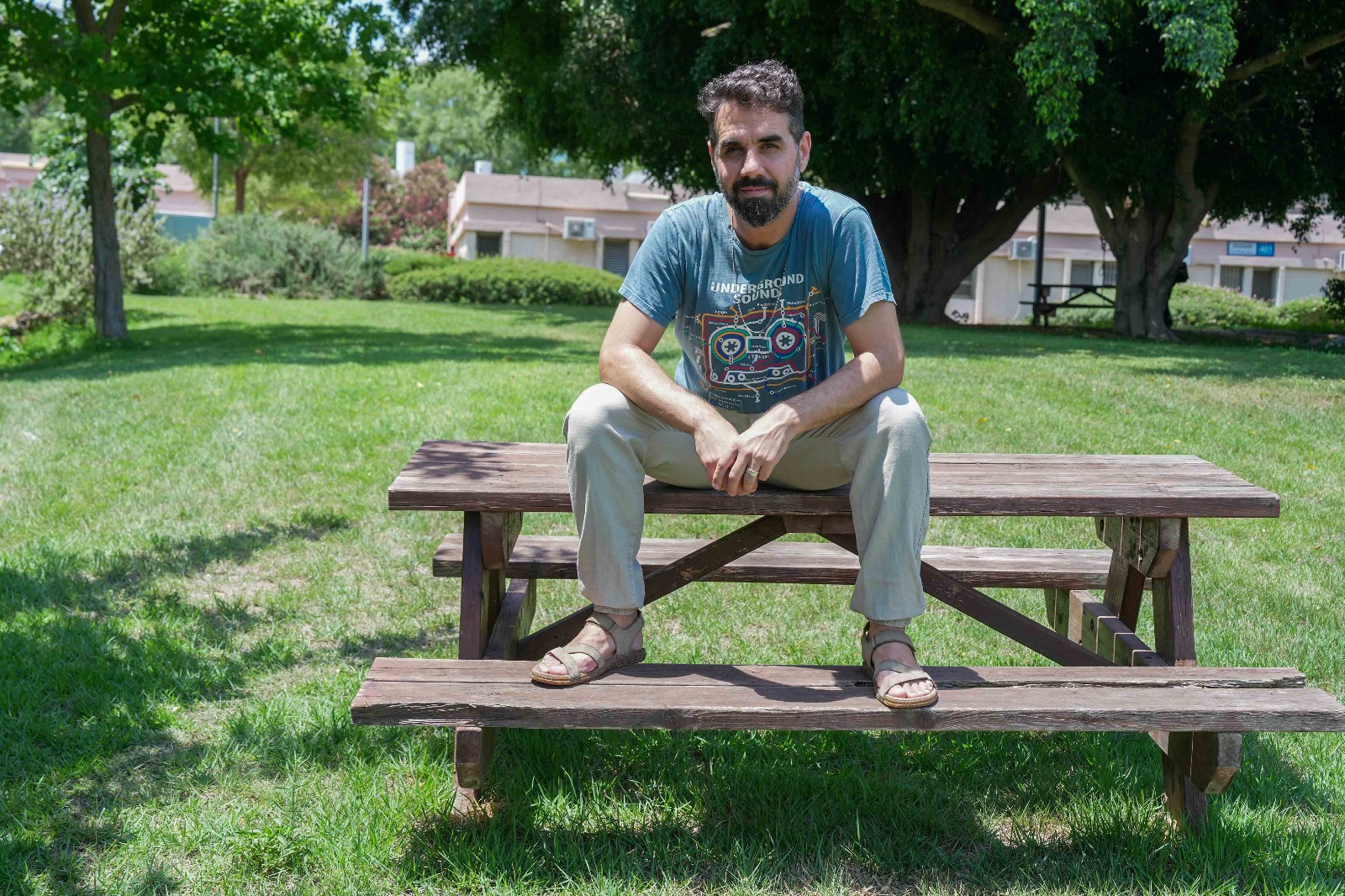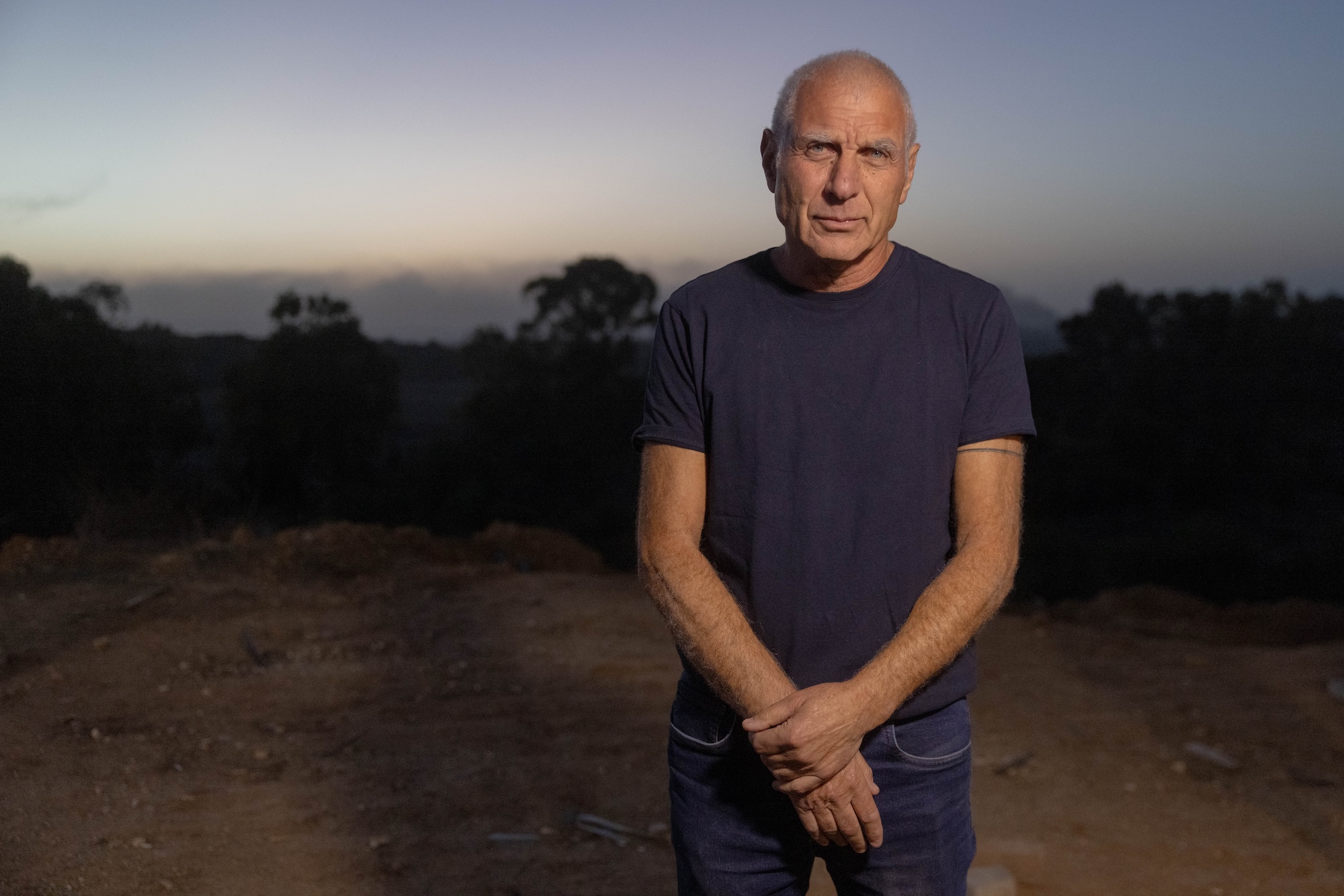Your Daily Phil: New studies show persistence of gender gap in wages, leadership
Good Tuesday morning.
In today’s edition of Your Daily Phil, we examine new studies in the Jewish and general nonprofit sectors on the persistence of a gender gap in leadership roles and wages. We report on Keren Kayemeth LeIsrael-Jewish National Fund’s new $220 million budget for rehabilitating Israel’s war-hit regions, and spotlight an initiative to create a new thriving Orthodox Jewish community in North Carolina’s Blue Ridge Mountains. We feature an opinion piece by Chen Shamir about the launch of a new kibbutz in Israel aiming to cultivate the next country’s generation of educational leaders, and another by Jamie Simon highlighting ways Jewish camps have modeled leadership and communal responsibility this summer. Also in this issue: Larry Ellison, Rabbi Ari Yehuda Saks and Louise Strauss.
What We’re Watching
The Rohr Jewish Learning Institute’s National Jewish Retreat kicks off tonight in Washington with an opening networking event, running through the weekend.
What You Should Know
A QUICK WORD WITH EJP’S NIRA DAYANIM
Among the casualties of a decade marked by rapid and at times catastrophic change may be the efforts to create equitable workplaces that were fairly ubiquitous in the late 2010s on the heels of the #MeToo movement.
As the capacity — of both Jewish professionals and institutions — to long-term plan and problem-solve has been compressed, many of the goals forged by these same institutions in more optimistic times have been placed on a proverbial backburner.
This week, a nonprofit compensation report released by Candid found that while women lead a majority (58%) of “small-budget” nonprofits — $250,000 or less — they lead under a third of those with budgets exceeding $50 million. At the same nonprofits, female CEOs earned 75 cents to every dollar earned by their male counterparts.
According to Sara Shapiro-Plevan, founder and former CEO of the Gender Equity in Hiring Project — which shut down this summer due to a lack of funding — and current chief program officer at Elluminate, these dynamics are mirrored within the Jewish nonprofit sector. “The Jewish community really is not that different from the rest of the nonprofit sector,” she said. “I think that we wish we were anomalous, but we really are not.”
Data from Leading Edge’s unreleased 2025 employee experience and CEO surveys shared with eJP by Seth Chalmer, vice president of communications at Leading Edge, points toward a similar conclusion. “If you look at just the total number of Jewish nonprofits, the gender of CEOs is a pretty even split. It’s 48% men, 49% women,” said Chalmer. “But most of the lowest budget Jewish organizations are led by women, and most of the highest budget Jewish organizations are led by men.”
Specifically, 65% of Jewish nonprofits with budgets under $5 million are led by women, according to Chalmer, and 65% of Jewish nonprofits with budgets over $20 million are led by men.
The reasons for this can vary, according to Shapiro-Plevan. On one hand, biases against women can impact those vying for these positions. Conversely, she said, the demands of top positions at the largest Jewish nonprofits are undesirable to many women, and, in fact, most people, requiring not only the leader to pledge themselves to the organization but also for the leader’s partner to actively support their efforts. “They’re the kinds of jobs that require wives. Not all women have ‘wives,’” she said.
According to Chalmer, the three largest gender gaps in Leading Edge’s data for this year were found during surveys with questions related to salary. Asked if they believe their salary is fair relative to other roles at their organization, 56% of male respondents agreed, 11% more than female respondents. Asked if they “understand how salaries and raises are determined at their organization” and if their organization “takes action to improve our approach to compensation,” 7% fewer women agreed with both questions.
Leading Edge’s data also pointed to discrepancies between employees of Jewish nonprofits and the leadership of those organizations. Beyond the C-suite, 68% of employees identified as women, while 21% identified as men (3% identified non-binary, gender-queer, gender-fluid, or self described, and 9% declined to answer). That gap has widened somewhat since Leading Edge’s initial surveys in 2016 and 2017.
The gender wage gap is by no means “new” news. Data from both organizations points to its stubborn persistence. For now, it seems, the communal focus has shifted to more immediate crises.
BUILD BACK BETTER
KKL-JNF allocates $220 million toward rebuilding war-hit northern, southern Israel

The Keren Kayemeth LeIsrael-Jewish National Fund approved an “irregular, multi-year budget” totaling $220 million (NIS 750 million) toward the reconstruction and rehabilitation of Israel’s Gaza border region and northern Israel. A tenth of the funds are earmarked for the hard-hit Kibbutz Nir Oz, a quarter of whose members were murdered or taken hostage, the organization said on Monday. “Nir Oz, which was the symbol of the devastation of the Oct. 7 attacks, will be a symbol of the reconstruction,” Ifat Ovadia-Luski, chairwoman of KKL-JNF, told eJewishPhilanthropy’s Judah Ari Gross. “We don’t want to return [northern and southern Israel] to what they were, but to better than they were.”
Core focus: According to KKL-JNF, the budget will be allocated through a “dedicated professional directorate” to projects connected to four “core” areas: community rehabilitation and expansion; economic revitalization; education and community investment; and innovation and trauma recovery. The directorate will make allocations based on “clear criteria” that are primarily based on “how much the community was damaged and the distance from the border,” Ovadia-Luski said.
COUNTRY ROADS, TAKE ME HOME
Mountain minyan: An unorthodox experiment on North Carolina’s Blue Ridge

Yudi Gross is the CEO of Shefa Living, a company that is developing a 350-home gated community catering toward religious Jews. He knows his pitch is somewhat unorthodox: Move to the mountains. In North Carolina. To a tiny town with no synagogue and few other Jews for miles. But what he’s pitching is a radical vision of what observant Judaism could look like if not bound to the geographical constraints that have kept Orthodox communities from rural living. Gabby Deutch reports for eJewishPhilanthropy’s sister publication Jewish Insider on the effort to build a brand-new Orthodox community from the ground up, in a Bible Belt town 90 miles from the nearest airport.
No limits: Glossy marketing materials on Shefa Living’s website call it a “new Torah-centric community in the Blue Ridge Mountains.” Buyers have put down deposits on 60 homes, Gross said. Starting in September, they’ll choose their lots, and work with developers on selecting upgrades and finishes in the new homes. More than 150 people have visited North Carolina to tour the site. “This is not just 25-30 people who want to have a nice place in the summer. This is a dream for so many people,” Gross said. “I hope this transforms the way Orthodox families can choose to live geographically.”
Read the full story here and sign up for Jewish Insider’s Daily Kickoff here.
MEETING NEXT-GEN NEEDS
From disaster to revival: Israel’s Academic Kibbutz and the rebirth of a generation

“American psychologist Jeffrey Arnett coined the term ‘emerging adulthood’ to describe this [young adult] life stage, defined by identity exploration, instability, self-focus and optimism. Just as the Industrial Revolution created adolescence, the digital age has created a new life stage. Yet, we’ve built no frameworks to support it. The result? A whole generation stuck between the past and the possible, without institutions to reflect their needs or aspirations,” writes Chen Shamir, founder and CEO of Alumim, in an opinion piece for eJewishPhilanthropy.
A new initiative: “When I searched for educational models tailored to this stage, I found none — not in Israel, not globally. … So I turned to giants. Martin Buber’s dialogical philosophy fosters deep human connection. Paulo Freire’s critical pedagogy equips students for social change. Nikolaj Grundtvig’s folk high schools created communal learning spaces for adults in Denmark. But perhaps the most powerful inspiration comes from Israel’s own youth movements, which for decades have nurtured leadership, meaning and collective purpose. … This is why I’m launching the Academic Kibbutz, in partnership with Ruach Alumim and Beit Berl Academic College, and with the support of Habaita (Homeward). It’s a living-learning community that will train the next generation of educational leaders, not in theory, but in practice.”
JEWISH LEADERSHIP PIPELINE
How summer camps model the leadership our communities need

“Just as summer was beginning, camps across North America faced immediate staffing shortages and logistical disruption. In response, Foundation for Jewish Camp launched an emergency campaign to help camps adapt. Within 72 hours, more than 1,400 people — from teens to retirees, from Orthodox Jews to people who aren’t Jewish at all — stepped up to help,” writes Jamie Simon, CEO of Foundation for Jewish Camp, in an opinion piece for eJewishPhilanthropy. “Later in the summer, when devastating floods hit camps in Texas, the same ethic we saw during the war resurfaced. Though the affected camps weren’t Jewish, our network responded quickly, promoting fundraising efforts and offering support.”
Experiential learning: “In a world that often prizes individuality over interdependence, Jewish camp remains a sacred space where young people live in community, care for one another and see that their actions matter. And this summer, the power of that community came into sharp focus… The willingness to volunteer and say Put me in, coach, I can help — the optimism to find meaning in new plans when old ones get scrapped — these are powerful messages to campers. They show rather than tell what it means to be part of a resilient, caring community, and what it looks like to adapt in a world where young people are constantly confronting uncertainty. This kind of response is only possible because these values are woven into the camp experience. Camp cultivates individual leadership and communal responsibility.”
Worthy Reads
Checks on Checks: In The Wall Street Journal, Hebrew University law professor Netta Barak-Corren calls on the U.S. and other global aid donors to commit to condition future humanitarian assistance on recipient countries hitting established benchmarks meant to address aid diversion. “Against the immediate risk of human suffering, donors must consider that allowing aid diversion could extend that risk for years. A cross-country analysis of 621 leaders in 123 countries from 1960 to 1999 showed that large, unconditional aid inflows help autocrats survive. World Bank data show that unconditional aid correlates with higher corruption and weaker rule of law. Nothing obligates donors to bankroll the fighters causing the suffering. Setting conditions on aid to prevent diversion aligns humanitarian spending with humanitarian intent.” [WSJ]
Oracular Spectacular: In The New York Times, Theodore Schleifer and Nicholas Kulish look into a new institute being set up by Larry Ellison to encourage business growth, which he announced in a post on X last month. “At the core of Mr. Ellison’s new promise is not a charity but a complicated web of largely for-profit companies that comprise the institute, according to British corporate records. … Mr. Ellison has soured on the nonprofit sector, saying that its record at ‘solving the big problems isn’t fantastic,’ [the institute president, John Bell, a longtime Oxford University scientist,] recounted… In his post on X, Mr. Ellison noted that he signed the Giving Pledge… But his post gestured at ‘additional ways’ he wanted to spend his money, and said he was ‘amending’ his pledge.” [NYTimes]
You Give Yourself Away: In The Atlantic, singer Bono makes a plea for a ceasefire between Israel and Hamas in which he criticizes the Oct. 7, 2023, Hamas attacks as well as the actions of Israeli Prime Minister Benjamin Netanyahu’s government. “The rape, murder, and abduction of Israelis at the Nova music festival and elsewhere in southern Israel were evil. … Yahya Sinwar didn’t mind if he lost the battle or even the war if he could destroy Israel as both a moral and an economic force. … Might the world deserve to know where this once promising, bright-minded but flawed nation, the only democratic nation in the region, is headed unless there is a dramatic change of course? … Are Israelis really ready to let Benjamin Netanyahu do to Israel what its enemies have failed to achieve over the past 77 years, and disappear it from membership in a community of nations built around even a flawed decency? ” [TheAtlantic]
Holding Ourselves Accountable: In The Times of Israel, Rabbi Yosef Blau, a former longtime mashgiach ruchani (spiritual supervisor) at Yeshiva University’s rabbinical school, questions how the imperative to destroy Hamas balances against the humanitarian crisis facing Gaza’s civilian population. “It is one thing to postulate that every war has its so-called collateral damage, and quite another to imply that there is no limit to hurting non-combatants. That is, the circumstances of war may force an army to endanger civilians, especially when they are being used as human shields, but the distinction between soldiers and civilians still matters. That distinction matters even more than it once did at this point in the war, nearly two years in, after the elimination of Hamas’s political and military leadership.” [TOI]
Word on the Street
Norway’s sovereign wealth fund said yesterday that it was divesting from 11 Israeli companies and had terminated its contracts with external fund managers in Israel over concerns regarding the humanitarian crisis in Gaza and the West Bank. The move comes despite efforts by Nicolai Tangen, CEO of the firm that manages the fund, to build ties with American business leaders, including prominent Jewish ones who have prominently engaged in philanthropic efforts to support Israel following the Oct. 7 attacks, including Michael Dell, Jonathan Gray, Paul Singer and Ruth Porat, Jewish Insider’s Matthew Kassel reports…
The Israeli Defense Ministry is challenging the growing understanding that there are severe food shortages in Gaza, calling it an “orchestrated campaign” by Hamas and saying that those who have died of malnutrition had preexisting medical conditions; experts have rebutted the military’s claims, noting that people with illnesses are typically the first to die in a famine…
The Israeli-American Council said its Los Angeles headquarters were vandalized with swastikas and other Nazi symbols over the weekend…
Authorities in Montreal arrested a man in connection with a weekend attack on an Orthodox Jewish man in the city’s Villeray–Saint-Michel–Parc-Extension neighborhood…
Rabbi Ari Yehuda Saks is facing disciplinary action from the Conservative movement over his officiation of interfaith marriages, which is a violation of the Rabbinical Assembly’s rulings…
City & State NY put out its annual Manhattan Power 100 list; Manhattan Borough President Mark Levine tops the list, which also includes NYPD Commissioner Jessica Tisch, Reps. Jerry Nadler (D-NY) and Dan Goldman (D-NY), ADL CEO Jonathan Greenblatt, Sid Davidoff, Steven Rubenstein, James Tisch and Merryl Tisch, Brad Tusk, Nancy Cantor, Seth Pinsky, Eva Moskowitz and Columbia University President Claire Shipman…
The New York Times reviews Giaime Alonge’s novel The Feeling of Iron, about two Holocaust survivors who track down their Nazi tormentor decades after the Holocaust…
Israeli Strategic Affairs Minister Ron Dermer is reportedly considering resigning from the Israeli government in the coming months…
A bipartisan group of more than 70 House lawmakers pressed the Trump administration last week about the supplemental round of Nonprofit Security Grant Program funding awarded to more than 500 Jewish groups in June, saying that the administration is withholding information from Congress about which institutions are receiving funding, Jewish Insider’s Marc Rod reports…
xAI’s Grok chatbot said it was temporarily suspended after accusing Israel of genocide, weeks after the feature came under fire for a series of antisemitic and violent postings…
Sheldon “Corky” Levin, a Minnesota businessman and former president of the Minnesota Jewish Federation, died on Saturday at 91…
Major Gifts
The estate of Louise Strauss donated $40 million to Harcum College, a private associate degree-awarding college outside Philadelphia; this is the largest single gift the institution has ever received…
The Roy Lichtenstein Foundation awarded a $2 million grant to the Smithsonian Institution to support the preservation and archiving of digital materials and digital-born art…
Pic of the Day

Nicole Tepper (center, in black t-shirt) and a team of 700 volunteers fill backpacks with school supplies, which will be distributed to local children from low-income families, last Thursday at the Charlotte (N.C.) Convention Center as part of Classroom Central’s annual back-to-school event Backpack Build. The initiative — the organization’s largest ever — is supported by the David & Nicole Tepper Foundation and the Carolina Panthers NFL team.
“When Classroom Central reached out and with everything going on in the world today, we just… realized that we have to do more. We always want to do more,” Tepper told reporters on the sidelines of the event. “To be able to make this step and give more backpacks to more kids was just a no-brainer.”
Birthdays

Argentina-born political activist on behalf of Israel’s Gaza border region and former member of Knesset from the Yesh Atid party, Haim Jelin…
Hungarian-American investor, currency trader and political activist, born György Schwartz, George Soros… Retired Beverly Hills attorney, Sheldon Stanford Ellis… Emmy Award-winning television screenwriter, television producer and author, Gail Parent… Professor of psychology at the University of Pennsylvania and author of many self-help books, Martin Elias Peter Seligman… Attorney in Ontario, Canada, who served as president of the Canadian Jewish Congress, Lester Scheininger… British-born former wealth manager now living in Israel, he and his wife run Zichron Yaakov’s second-hand English bookstore, Andrew Harwood… Co-founder and chairman of the film and television company Beacon Pictures, Barry “Armyan” Bernstein… U.S. diplomat, Karyn Allison Posner-Mullen… Trustee at Houston’s Congregation Emanu El, she worked for more than 40 years at the University of Texas Health Science Center at Houston, Fredi Bleeker Franks… Sales manager of Illi Commercial Real Estate in Sherman Oaks, Calif., Stuart Steinberg… Israel’s former ambassador to Uzbekistan, Bulgaria, Kenya, Uganda, Tanzania and Albania, Noah Gal Gendler… Founding editor of The Times of Israel, David Horovitz… Chairman of Goldman Sachs International, Sir Bradley Fried… Senior rabbi at Brookline’s Temple Beth Zion, Claudia Kreiman… Award-winning writer of fiction and non-fiction and the author of several novels and a novella, Rachel Kadish… Veteran Israeli political and diplomatic correspondent, Tal Schneider… Chief strategy officer at NYC’s Educational Alliance, Anya Hoerburger… Scottsdale-based real estate Investor, Jay Chernikoff… Co-founder at Understory, David Fine… CEO and co-founder of Forsight, a property technology AI and machine learning company, Ariel Applbaum…









